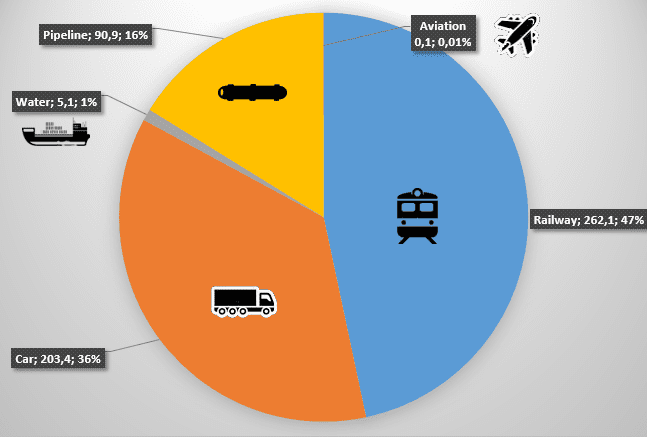
Ascania-Pack, part of the Ascania muti-profile Ukrainian holding, has started exporting honey to Saudi Arabia.
According to a company press release on Monday, the first batch of 12.2 tonnes was shipped in December.
“Saudi Arabia has become the eighteenth country in the world where the company exports cream honey for the retail market, including the United States, Canada, Singapore, Iraq, Qatar, as well as European countries,” the company said.
Ascania-Pack is a large Ukrainian exporter of honey, has its own production, which allows processing more than 20,000 tonnes of honey per year.
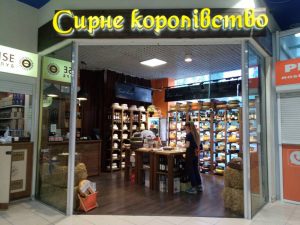
Ukraine in January 2020 exported 330 tonnes of cheese, which is 27.4% less than in January 2019. According to the State Customs Service, in monetary terms exports amounted to $1.2 million, which is 19.9% less than in January 2019.
At the same time, cheese imports in January 2020 increased 2.4 times, to 2,770 tonnes. In monetary terms, imports increased 2.2 times compared to January 2019, to $12.35 million.
In January 2020, export of butter from Ukraine decreased by 58.3%, to 743 tonnes, in money terms by 50%, to $3.49 million. According to the State Customs Service, import of this product increased 11.3 times, to 1,020 tonnes ($4.52 million).
In addition, export of milk and cream (condensed) in January 2020 fell by 24.4%, to 1,630 tonnes. In January 2020, Ukraine supplied condensed milk and cream for a total of $3.69 million (the same as in January 2019). Imports of this group of goods grew by 37.1%, to 229 tonnes ($507,000).
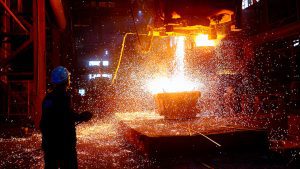
Ukraine in January 2020 increased exports of titanium containing ore and concentrate in kind by 12.2% compared to 2018, to 52,400 tonnes.
According to customs statistics released by the State Fiscal Service, over the period exports of titanium ore and concentrate in monetary terms decreased by 8.6%, to $12.586 million.
Major exports were made to Mexico (23.84% of deliveries in monetary terms), Russia (18.01%) and Egypt (13.79%).
Ukraine in January 2020 imported 78 tonnes of similar products worth $55,000 from Senegal (805 tonnes for $163,000 in January 2019).
Vilnohirsk state mining and metallurgical combine (Dnipropetrovsk region), Irshansk state mining and processing combine (Zhytomyr region), Valki-Ilmenite and Mezhdurechensk Mining and Concentration Complexes (both are located in Irshansk, Zhytomyr region) are the main producers of titanium ore in Ukraine.
Dnipro-based Velta production and commercial firm built a mining and processing complex at the Birzulivske ilmenite deposit, which has a 240,000-tonne ilmenite concentrate capacity per year.
Holding company Velta Group Global Ltd. was registered in London in November 2011.
Ukrainian population by regions as of Dec, 2019 (graphically)
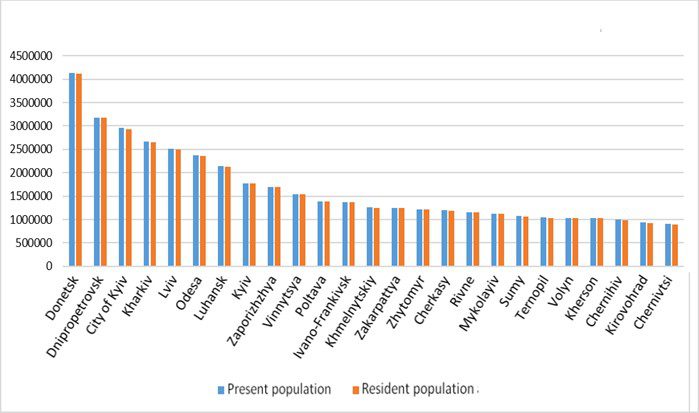
Passengers carried in Ukraine in Jan-Oct 2019, in Mln.
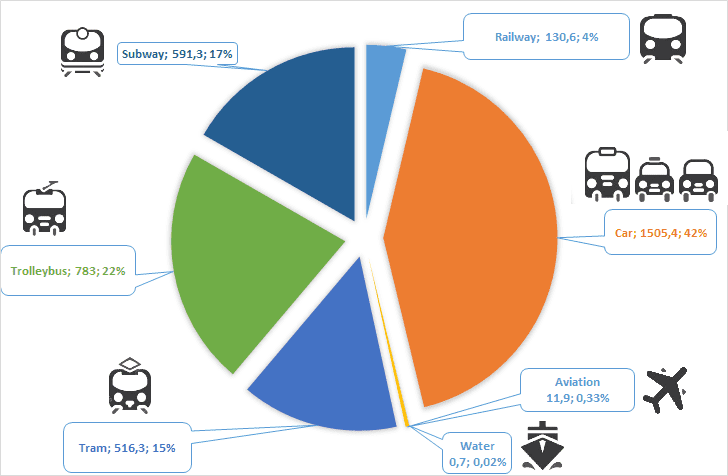
Volumes of cargo transportation in Ukraine in Mln tons.
